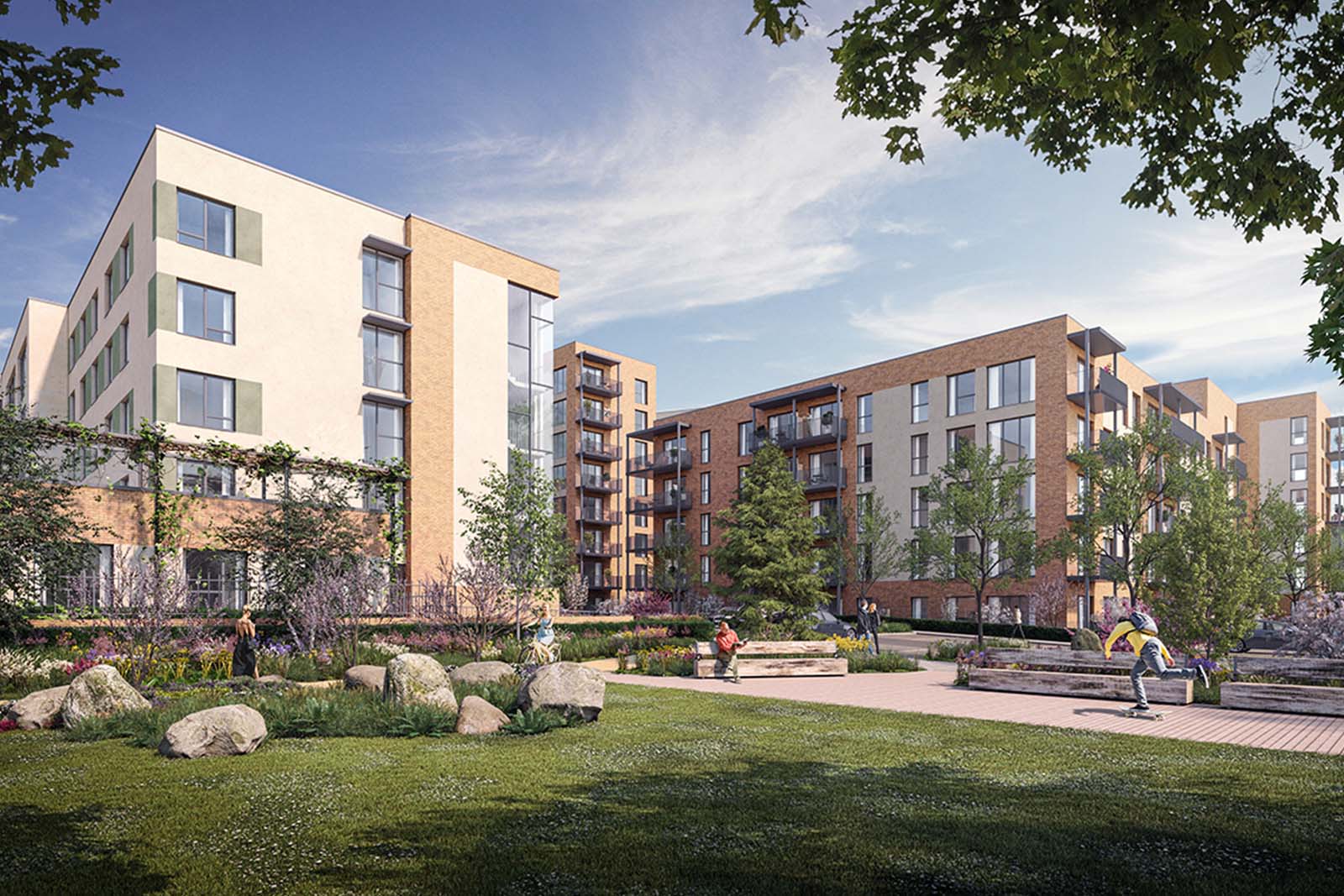Hong Kong, 20 October 2021 – The developer behind a portfolio of four purpose-built, premium nursing homes costing €127m (HKD1.15bn) in Ireland is expanding its healthcare business to provide more much-needed nursing home beds and is well-positioned to fundraise the construction costs from Asia investors through the Immigrant Investor Programme (IIP).
Bartra Healthcare, a subsidiary of Bartra Group, is adding Cookstown Tallaght, a €33m nursing home project (Phase Five) in South Dublin to its portfolio. The Group’s subsidiary, Bartra Wealth Advisors launched the project globally on 15 October to its IIP clients across Hong Kong and Shanghai in China, and Ho Chi Minh City in Vietnam, and managed to snap up €6m in two weeks at the project ‘pre-launch’ stage.
James Hartshorn, CEO and Co-founder of Bartra Wealth Advisors commented, “We are glad to see our hard work has paid off. Many high-net-worth clients in Asia would like to immigrate to Ireland and they are confident in the IIP and Bartra’s nursing home projects on four fronts. Firstly, Ireland is a rising star in Europe where it provides excellent education to children, which leads to good future job prospects as a result of its growing economy as well as opportunities in EU countries, the UK and the US. Secondly, the IIP provides fast track permanent residency status with great flexibility on residing requirements as applicants can immigrate without relocating. Thirdly, our integrated business model makes our clients feel safe. We are the only nursing home developer in the Irish healthcare sector to source, build and manage projects from start to finish as well as provide clinical care premium services. In Hong Kong and other major cities in China, and in Vietnam, we provide our clients with direct investment opportunities into our IIP projects including nursing homes. Finally, all the nursing home projects are carefully sourced and built in key Dublin urban locations where they benefit from excellent transport links and proximity to major hospitals. These locations have a high demand for nursing home beds and the projects are built to meet the highest Irish Government (HIQA) and EU standards, qualifying Bartra Healthcare homes for government supported revenue models. Investing in our projects is not only very safe, but also capital guaranteed with a 4% annual interest rate, all factors favoured by our Asian clients.”


Cookstown Tallaght nursing home launch and Irish immigration seminar in Bartra Wealth Advisors’ Hong Kong office, presented by Jeffrey Ling, Regional Director.


Cookstown Tallaght launch event in Shanghai, presented by James Hartshorn, CEO and Co-founder and Charlie Shi, China Sales Director.


Cookstown Tallaght launch webinar in Vietnam, presented by Head of Country, Jenny Dang and Head of Operations, Daniel Hinds.
Ireland has become an on-demand immigration hotspot in Asia as an alternative to the UK, the US and other English-speaking countries. Affluent families are drawn to its outstanding quality of education and living standards as well as its accessibility to the EU and the UK (under the CTA Agreement), strong transport links to Europe and the US, and strong economic growth that perennially puts Ireland ahead of its European peers. Many industries such as pharmaceuticals, innovation and technology, and the financial sectors are fast-growing, with more foreign companies coming into Ireland to set up European headquarters and ensuring a thriving job market. All these factors make Ireland one of the world’s immigration hotspots.
Additionally in Ireland, the Irish nursing home sector is facing a major shortage of beds thanks to years of under-investment following the recession in 2008. Because of this lack of beds, and coupled with Ireland’s ageing population where more than 15% of the population is now aged over 65, the demand for nursing home facilities is huge. CBRE’s 2021 report outlined that Ireland needs to build an extra 15 thousand nursing home beds over the next nine years to service this growing elderly population.
This has led the Irish government to prioritise IIP investment in the delivery of critically needed nursing home accommodation. In Ireland, the Health Service Executive (“HSE”) also supports the private nursing home sector through the Irish Government’s Nursing Home Support Scheme (also known as the “Fair Deal Scheme”) which provides approximately 80% of the income for private nursing homes.
Bartra acquired a 1.14-hectare (2.82 acres) site at Cookstown, Dublin 24
Bartra Healthcare was established in response to the acute and high demand for nursing home care in Ireland and is on course to become the largest private-sector provider with a portfolio of over 1,000 beds across at least 10 nursing homes. Bartra Healthcare has four projects in its nursing home portfolio, three of which are already in operation, while construction is ongoing on the fourth home, providing a total of 608 beds and costing approximately €127m. The latest project, Cookstown Tallaght in South Dublin, will provide a 131-bed nursing home, together with a pharmacy and cafe, and is expected to commence construction in 2022. The site is located in the heart of Tallaght, a thriving urban hub with a population of 80,000 making it one of Dublin’s largest suburbs, where it also benefits from excellent transport links – the Belgard Luas light rail station is just 250 metres away, providing access for both staff and the families of residents. It also boasts proximity to major hospitals, including Tallaght University Hospital, Ireland’s leading academic teaching hospital, which is less than a kilometre away, and St James’s Hospital, just 8km away.
The total cost of the latest project is approximately €33m and Bartra is seeking €20m investor loans (5-year term, 4% annual interest) from IIP applicants to fund construction. In the two weeks prior to the official launch on 15 October, €6m was secured from IIP investors in Hong Kong and Ho Chi Minh City managed by Bartra’s immigration arm Bartra Wealth Advisors.
Jeffrey Ling, Bartra Wealth Advisors Regional Director commented on the advantages of Bartra’s IIP nursing home projects during a Hong Kong seminar: “We are the only group that integrates development, operation and management in the IIP, run and managed by a dedicated division – Bartra Healthcare. Bartra’s nursing homes are safe, authorised and much-needed projects in Ireland, and they have a state-backed revenue steam. We are committed to the home quality and to providing our clients principal repayment and 4% interest per annum. The scheme is extremely popular among our Hong Kong clients, who said they can use the 20% interest obtained at maturity, which is circa HK$2 million, to pay their children’s education fees or to buy property in Ireland.”
About Bartra Wealth Advisors
Bartra Wealth Advisors (Bartra) is a subsidiary company of Ireland’s most successful real estate developer Bartra Group, specialising in providing independent Irish immigration investment advisory services. With well-established business, extensive Irish immigration experience, expertise in the investment field, professional landing teams and strong business network support, Bartra Group has successfully carried out a significant number of social housing and nursing home IIP (Immigrant Investor Programme) projects and has helped hundreds of families successfully immigrate to Ireland.
Bartra Wealth Advisors prides itself on delivering streamlined, in-group, end-to-end services. Its unique business model supports clients throughout their investment and immigration journey, from immigration advisory and government backed IIP projects through to exit executions. It maintains a 100% application approval rate and a 100% renewal rate.






